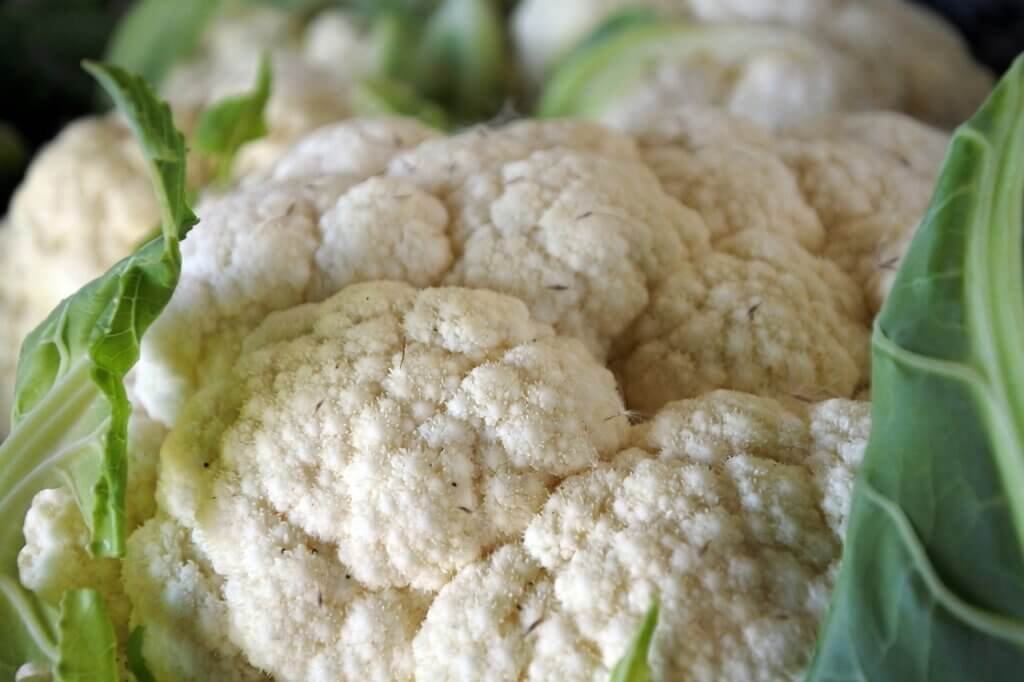Have you ever wondered about the perks of being involved in agriculture? Well, there are quite a few! From nurturing a deep connection with nature to enjoying the fruits of your labor, the benefits of agriculture are plentiful. Exploring this field allows you to witness the beauty of growth, contribute to sustainable practices, and even reap financial rewards. So, if you’re curious about how getting involved in agriculture can enrich your life, read on to discover the many advantages this vibrant industry offers.

Economic Benefits
Job creation
Being involved in agriculture can create a significant number of job opportunities. As you delve into the agricultural sector, you’ll find that there are various roles available, ranging from farmers and farmworkers to food processors, packaging workers, and distributors. These jobs are not only available in rural areas but also in urban locations, where there is a growing demand for locally produced and organic food. By engaging in agriculture, you have the potential to contribute to job creation and help reduce unemployment rates, ultimately benefiting both individuals and the overall economy.
Income generation
Engaging in agriculture can provide a reliable source of income. As you cultivate crops or raise livestock, you become part of a value chain that connects your products to the market. With effective planning, proper management, and adherence to market demand, agricultural activities can yield substantial financial returns. Furthermore, as the demand for organic and locally grown produce continues to rise, there is an opportunity to obtain premium prices for your products. This potential for profitable income generation is a significant advantage of being involved in agriculture.
Contribution to the GDP
Agriculture plays a crucial role in contributing to the Gross Domestic Product (GDP) of a country. By participating in agricultural practices, you contribute to the overall economic output of your nation. This contribution is not limited to the direct production of agricultural commodities but extends to related industries such as food processing, distribution, and export. The agricultural sector’s contribution to the GDP helps drive economic growth and stability, ensuring a healthy functioning economy for both rural and urban communities.
Food Security
Ensuring sufficient food supply
One of the key benefits of being involved in agriculture is the ability to contribute to food security. By engaging in farming practices, you play a vital role in ensuring a sufficient supply of food for your community, region, and even country. As a farmer, you can cultivate a diverse range of crops and raise livestock to meet the nutritional needs of the population. With careful planning and efficient agricultural techniques, you can play a crucial role in stabilizing food prices and reducing the risk of food shortages, ultimately ensuring that people have access to an adequate and wholesome food supply.
Reducing dependency on imports
Engaging in agriculture helps reduce a country’s dependency on food imports. By cultivating a wide variety of crops and raising livestock locally, you contribute to domestic food production and decrease the need for importing food from other countries. This reduction in dependence on imports helps enhance food security, as it minimizes the vulnerability to potential disruptions in international trade or fluctuating prices. Furthermore, by producing food locally, you support the development of a self-sustaining food system that is resilient, reliable, and less reliant on external sources.

Environmental Benefits
Conservation of natural resources
Agriculture offers significant environmental benefits, including the conservation of natural resources. As a farmer, you have the opportunity to implement sustainable farming practices that promote soil health, water conservation, and the protection of natural ecosystems. By adopting techniques such as crop rotation, cover cropping, and organic farming, you can minimize soil erosion, improve soil fertility, and preserve water quality. Additionally, the use of efficient irrigation systems and precision agriculture technologies allows for responsible water management, reducing the strain on vital water resources.
Carbon sequestration
Engaging in agriculture can contribute to carbon sequestration, helping combat climate change. Through proper land management practices, such as agroforestry and the planting of cover crops, agricultural activities can effectively store carbon dioxide from the atmosphere in the soil and plant biomass. This carbon sequestration not only reduces greenhouse gas emissions but also improves soil health and fertility. By being involved in agriculture, you actively participate in mitigating climate change and promoting a more sustainable future.
Biodiversity preservation
Agricultural practices have the potential to support biodiversity preservation. As a farmer, you can create and maintain habitats for various plant and animal species within your agricultural landscape. By implementing agroecological approaches, such as planting hedgerows, preserving wetlands, and promoting native plant species, you contribute to the preservation of biodiversity. These diverse ecosystems attract beneficial insects, birds, and pollinators, ensuring natural pest control and promoting the overall health of the environment.
Health Benefits
Access to fresh and nutritious food
Being involved in agriculture provides you with direct access to fresh and nutritious food. By growing your own fruits, vegetables, and herbs, you have the opportunity to consume produce at its peak freshness, maximizing its nutritional value. Moreover, cultivating a wide variety of crops allows for a diverse and balanced diet, providing essential vitamins, minerals, and antioxidants. By actively participating in agricultural practices, you promote healthy eating habits and contribute to your overall well-being.
Physical activity and overall well-being
Engaging in agricultural activities offers numerous physical and mental health benefits. As a farmer, you engage in physical tasks such as planting, harvesting, and maintaining the farm, which provide excellent opportunities for exercise and physical activity. These activities contribute to improved cardiovascular health, enhanced strength and stamina, and increased flexibility. Additionally, working outdoors in nature has positive effects on mental health, reducing stress levels and promoting a sense of well-being. By being involved in agriculture, you can lead a fulfilling and active lifestyle.

Community Development
Strengthening rural communities
Agriculture plays a vital role in strengthening rural communities. By being involved in agriculture, you contribute to the social fabric of rural areas, fostering a sense of community and cooperation. Agricultural activities often require collaboration among farmers, which leads to the formation of support networks and the sharing of knowledge and resources. This cooperative spirit helps build strong rural communities, providing a sense of belonging and social cohesion that enhances the overall quality of life.
Preservation of cultural heritage
Engaging in agriculture promotes the preservation of cultural heritage. Farming practices often have deep-rooted traditions and knowledge passed down through generations, representing the rich cultural heritage of a community. By participating in these practices, you help preserve traditional farming techniques, agricultural rituals, and the unique customs associated with food production. This preservation of cultural heritage contributes to the identity and diversity of rural communities, maintaining their historical connection to the land and fostering cultural pride.
Rural Employment Opportunities
Reducing rural-urban migration
Agriculture provides employment opportunities in rural areas, reducing the need for individuals to migrate to urban centers in search of livelihood. By engaging in agricultural activities, you contribute to rural development, offering job opportunities that help sustain local communities. These employment opportunities help alleviate the pressures of rural-urban migration, ensuring a balanced distribution of the population and reducing the strain on urban infrastructure and resources. By being involved in agriculture, you actively contribute to the growth and well-being of rural communities.
Improved standard of living
Engaging in agriculture can lead to an improved standard of living for individuals and rural communities. Agriculture offers the potential for increased income, access to nutritious food, and, in turn, improved overall well-being. By generating income through agricultural activities, individuals have the means to afford better housing, healthcare, education, and other essential services. Additionally, the presence of a vibrant agricultural sector contributes to local economic development, resulting in improved infrastructure, services, and opportunities for the entire community.

Diversification of Income Sources
Reducing reliance on a single industry
By being involved in agriculture, you have the opportunity to diversify your income sources. Many rural economies heavily rely on a single industry, leaving them vulnerable to sudden shifts in market conditions or external factors. Engaging in agricultural activities provides an additional income stream that can help reduce reliance on one industry and create a more resilient economy. By exploring various agricultural ventures, such as livestock rearing, crop cultivation, or niche market products, you can diversify your income sources and increase your financial stability.
Creating additional revenue streams
Agriculture offers the potential to create multiple revenue streams. Beyond the primary production of crops and livestock, you can explore value-added activities such as food processing, agro-tourism, or the production of artisanal products. These additional revenue streams allow you to capitalize on the unique characteristics of your agricultural products, catering to niche markets and cultivating customer loyalty. By diversifying your income sources, you can maximize your earning potential and create a sustainable business model that withstands market fluctuations.
Educational Opportunities
Hands-on learning experiences
Engaging in agriculture provides valuable hands-on learning experiences. By actively participating in farming practices, you acquire practical skills and knowledge about soil management, crop cultivation, livestock care, and other aspects of agriculture. These hands-on experiences complement formal education and provide a holistic understanding of the agricultural sector. Additionally, agriculture offers opportunities for apprenticeships, internships, and mentorship programs, allowing you to learn from experienced farmers and experts in the field. By embracing these educational opportunities, you strengthen your expertise and contribute to the growth of agricultural knowledge.
Promoting agricultural education
Being involved in agriculture promotes the importance of agricultural education. As an agricultural practitioner, you have the opportunity to advocate for agricultural education in schools, colleges, and communities. By sharing your experiences, knowledge, and passion for agriculture, you inspire the next generation to understand and appreciate the importance of farming practices. Promoting agricultural education fosters agricultural literacy, encourages sustainable practices, and ensures a well-informed society that values and supports the agricultural sector.

Technological Advancements
Innovation in farming techniques
Engaging in agriculture encourages innovation in farming techniques. As a farmer, you are constantly faced with challenges in the agricultural landscape, ranging from pests and diseases to changing weather patterns. These challenges drive the need for innovative solutions, leading to the adoption of new farming techniques and technologies. By being involved in agriculture, you have the opportunity to contribute to these developments, from precision agriculture and automated machinery to the use of remote sensing and data analytics. Embracing technological advancements enhances efficiency, productivity, and sustainability within the agricultural sector.
Adoption of smart farming technology
Agriculture is evolving with the adoption of smart farming technology. Smart farming encompasses the use of Internet of Things (IoT) devices, sensors, and automation to improve farm operations and decision-making. By engaging in agriculture, you have the chance to embrace this technology and harness its benefits. These advancements enable real-time monitoring of crops, livestock, and environmental conditions, optimizing resource management and reducing waste. By adopting smart farming technology, you enhance productivity, minimize environmental impact, and contribute to the overall advancement of the agricultural industry.
Sustainability
Promoting sustainable practices
Being involved in agriculture promotes the adoption of sustainable practices. As a farmer, you have the opportunity to implement environmentally-friendly agricultural techniques that minimize the use of synthetic inputs and reduce environmental impact. From organic farming and permaculture to regenerative agriculture, there are various sustainable approaches that prioritize soil health, biodiversity, and resource conservation. By actively participating in sustainable agriculture, you contribute to the global effort of preserving our planet’s resources, safeguarding the environment for future generations.
Mitigating climate change impact
Agriculture plays a crucial role in mitigating the impact of climate change. As a farmer, you can adopt climate-smart agricultural practices that aim to reduce greenhouse gas emissions, increase carbon sequestration, and enhance resilience to extreme weather events. These practices include efficient water management, agroforestry, cover cropping, and the use of renewable energy sources. By being involved in agriculture, you actively contribute to climate change adaptation and mitigation, ensuring the long-term sustainability of agricultural systems and the preservation of our planet.


